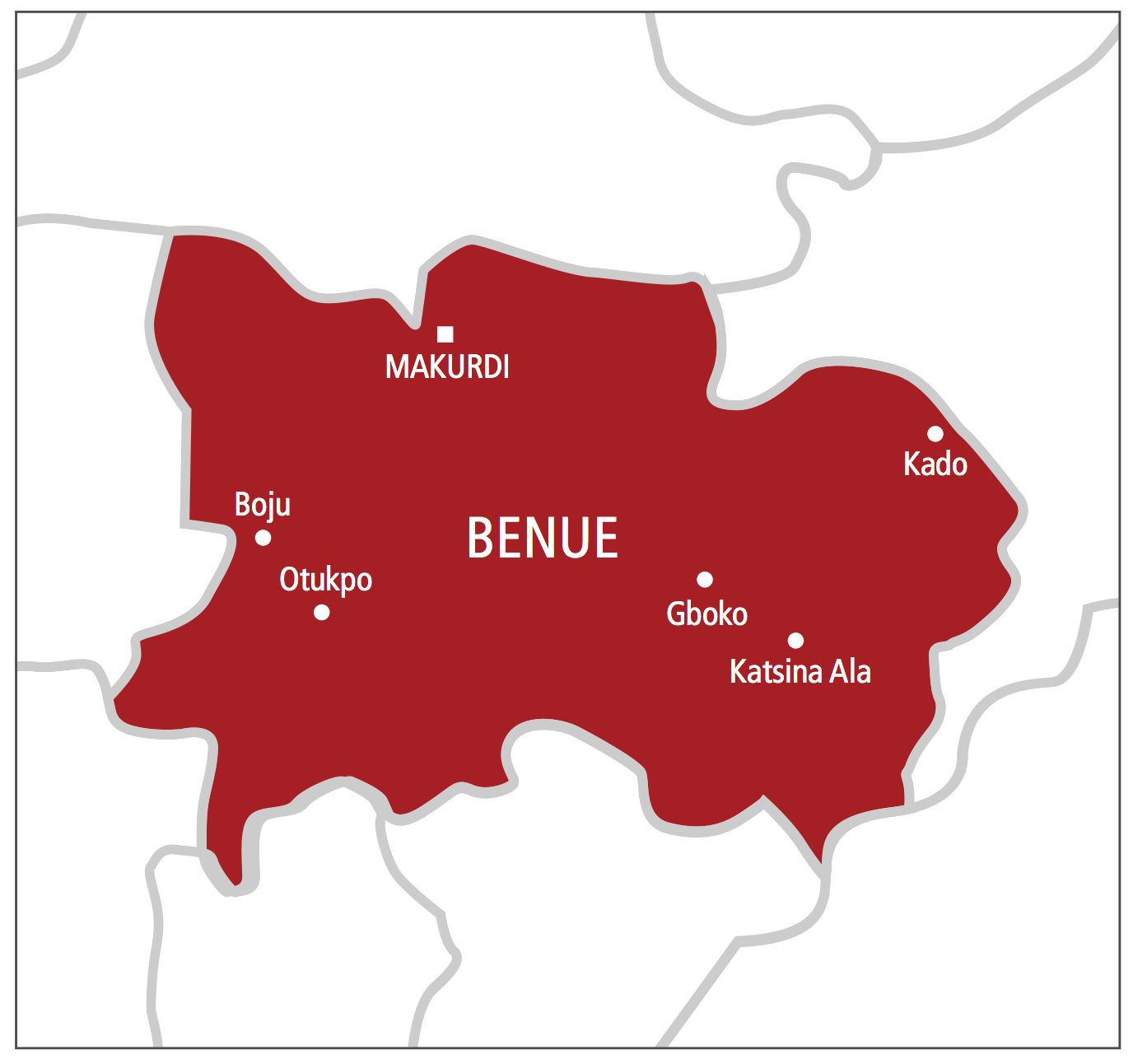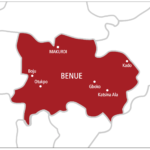Locals living near an ethanol-producing plant in Makurdi have said their communities are besieged by environmental hazards as a result of the activities of the company.
The plant, Pure Bio-Tech Company Limited, situated at kilometre 18, Gboko Road, Makurdi, the Benue State capital, uses cassava as its raw material and belongs to the chemical and pharmaceutical sector.
But the manner in which it disposes of the waste from the ethanol production process is of major concern to the communities which are within a three-kilometre radius of it.
Chief Terfa Gbam, a village head in the area who spoke with Daily Trust on the phone, on behalf of Abua, Angbaaye and Akile communities, said the waste which is a blackened sludge, is discharged into River Benue, which is a source of drinking and bathing water, and livelihood for the communities’ residents.
He said the water, since the plant was established in 2020, has been polluted and not fit for even a bath.
“They discharge the waste into the river which contaminates it and makes it unfit for drinking and even bathing. It also kills the fish in the river,” he said.
But the Corporate Communications and Public Relations Manager of the company, Mr Stephen Numbeve, in a telephone interview, said the waste is not hazardous and the odour is not harmful as well.
Penultimate Monday, the National Environmental Standards and Regulations Enforcement Agency (NESREA) sealed off the company over flouting of environmental laws and standards.
According to a statement by NESREA’s Amaka Ejiofor, Assistant Director, Press, the agency “sealed off the facility for discharging untreated effluent into water bodies thereby endangering human lives and the environment, and also flouting extant environmental laws and standards.”
It explained that, “This production of ethanol using cassava is a wet process that requires the installation of a functional Effluent Treatment Plant (ETP) which would ensure that waste from these processes is well treated before being discharged into the environment. The non-availability of the ETP is a clear violation of the provisions of the National Environmental (Chemicals, Pharmaceuticals, Soap and Detergent Manufacturing Industries) Regulations 2009 S.I No.36 and National Environmental (Sanitation and Waste Control) Regulations 2009 S.I No.28.).”
The statement further said the facility consultant (NESREA Accredited) carried out an Environmental Compliance Monitoring (ECM), and the report of the effluent analysed by the consultant was submitted to the NESREA Field Office Makurdi on April 16th, 2023, revealing that most of the parameters analysed from the effluent were above NESREA permissible level as provided under the National Environmental (Sanitation and Waste Control) Regulations 2009 S.I N0.28.
“The facility had earlier been issued notices of compliance concerns to halt production until a functional ETP is fully installed but it has failed to comply,” the agency added.
NESREA maintained that the action was meant to avoid further endangering the lives of residents who use water from the river for their basic household needs.
“This is in conformity with the provisions of the NESREA Act 2007 (as amended), which allows the agency to carry out such enforcement activity in situations where it becomes expedient and necessary to halt an action posing imminent danger to human life, animals and the entire environment,” the statement said.
Besides, the factory was found to be operating without an Environmental Impact Statement, and did not complete the process of conducting an Environmental Impact Assessment (EIA) before commencement of its operation which contravenes the EIA Act CAP. E12 of LFN, 2004; as well as operating without relevant environmental permits contrary to the National Environmental (Permitting and Licensing System) Regulations 2009 S.I N0.29.
The statement quoted the Director General of NESREA, Prof. Aliyu Jauro, as saying the facility remained sealed while investigations continued, stressing that at the conclusion of investigations, the appropriate sanctions would be meted out on the company.
“Compliance with laid down environmental laws is a must for any company operating in the country, as the agency is fully determined to ensure that non-compliant facilities are made to face the full wrath of the law,” Jauro said.
However, Chief Gbam said apart from contaminating their water source, the company also causes air pollution as the stench from the waste is poignant and choking.
Gbam said, “When they established the company, they sank over 70 boreholes and that has dried up our wells and we are left with the river as our only source of water. We have written to tell them our plight since last July and they promised to do something about it but up till now, we haven’t heard from them.
“Now it’s even difficult to sit outside and eat because of swarms of flies that have invaded our communities because of the waste. Mosquitoes too seem to have multiplied since the factory started production here. Even in the daytime, as I am speaking to you, mosquitoes are biting.
“Another thing is there are no toilet facilities for their customers who come to supply them cassava. Trucks line up from the factory to Angbaaye and to Abua with teeming customers who are left with no option than to defecate openly. This is also affecting us as our children get down with fever every now and then but we are helpless.”
A fisherman, who lives in Angbaaye and makes his living from fishing in River Benue, said the operations of the factory have affected his occupation.
The man who gave his name as Dantanimu said whenever they cast their nets around the vicinity of the plant, they get stuck in the sludge which has collected on the river bed.
Numbeve further said, “It’s true that we have discharged waste in the water but what we have put in there is not hazardous. It is treated effluent. The end result is always as natural as possible. So whatever goes into the river is very natural.
“Also, I can agree that the waste used to have offensive odour but that doesn’t happen again. You know cassava naturally; when fermented smells bad, even ‘akpu’ that we eat doesn’t smell good but we eat it. The odour is not harmful and our consultants are working tirelessly to ensure that the offensive odour is not there.”
He said staff members of the company live on the premises and if there was anything harmful, they would be the first to be affected.
Numbeve also said the company has sunk a borehole for the communities and three more would be dug in the coming week to cater for their water needs.
He confirmed that the NESREA team yesterday sealed off the second (personnel gate) of the company after allegations of the company continuing with production after the initial seal-off got to the agency.
Daily Trust gathered that the company gets cassava supply from Benue, Kogi, Nasarawa, Taraba, Niger, Cross River, Oyo, Ogun, Ekiti, Edo and Ondo states, creating wealth for over 30, 000 farmers.

 Join Daily Trust WhatsApp Community For Quick Access To News and Happenings Around You.
Join Daily Trust WhatsApp Community For Quick Access To News and Happenings Around You.


